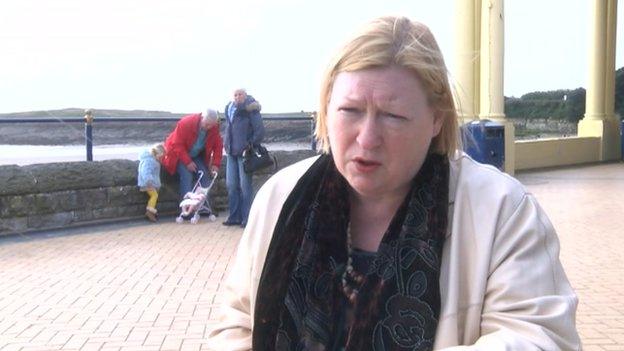Zero-hours contracts ban could have 'undesirable results'
- Published

Zero-hours contracts do not guarantee people any work
Banning zero-hours contracts could lead to "undesirable results", a Welsh government study has indicated.
Researchers were warned a ban could prompt the "cynical use" of alternative 15-minute contracts, or force public bodies to use more agency staff.
But the report, external says "inappropriate use" of zero-hours contracts to employ some home care workers should be tackled.
Ministers said guidance will be prepared for public organisations to ensure the contracts are not misused.
The study recommends the use of "social responsibility clauses" within the terms of contracts with home care providers.
60 organisations involved in delivering public services responded to the survey, including 17 private companies.
In a written statement to AMs, Public Services Minister Leighton Andrews said the research "shows the varied circumstances in which zero-hours contracts are used across public services and highlights issues associated with their use which warrant further consideration and action".
"I therefore intend to ask the Public Services Staff Commission, external, when established this autumn, to develop guidance to address concerns identified on zero-hours contracts.
"This will set clear expectations on practices we should expect of all public sector employers to ensure that zero-hours contracts are not used inappropriately."
'Adverse impact'
In April, Economy Minister Edwina Hart said that there was "no place" for such employment terms.
During the general election the then Labour leader Ed Miliband promised a law to give employees the right to a regular contract after 12 weeks of working regular hours.
The Office for National Statistics (ONS) recently estimated 2.5% of workers were on zero-hours contracts in Wales.
The ONS found around 35,000 people in Wales were employed on the contracts between October and December 2014.
On Thursday, Welsh Conservative leader Andrew RT Davies said there were "some people for whom more flexible working patterns are beneficial and the report highlights a risk that further legislation would have an adverse impact on them".
- Published1 April 2015

- Published1 April 2015

- Published1 April 2015
